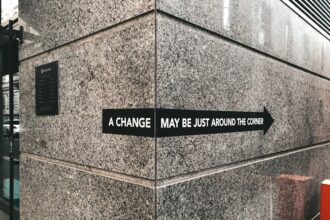In spiritual communities, the fawn response often manifests as a tendency to please others or conform to group norms, sometimes at the expense of one’s own needs and desires. You may notice this behavior in yourself or others when individuals prioritize harmony over authenticity, often suppressing their true feelings to avoid conflict. This response can be particularly pronounced in environments that emphasize love and acceptance, where the fear of rejection may lead you to adopt a persona that aligns with the group’s expectations.
Recognizing this pattern is the first step toward fostering a more genuine and supportive community. Understanding the fawn response is crucial for creating an environment where everyone feels safe to express their true selves. You might find that acknowledging this behavior not only helps you identify it in yourself but also encourages others to do the same.
By fostering open conversations about the fawn response, you can create a culture of acceptance that allows for vulnerability and honesty. This recognition can lead to deeper connections and a more authentic spiritual experience for everyone involved.
Key Takeaways
- Recognizing the Fawn Response in Spiritual Communities: Understanding the tendency to people-please and seek validation in spiritual settings.
- Understanding the Impact of Trauma in Spiritual Settings: Acknowledging how past trauma can affect individuals’ experiences in spiritual communities.
- Embracing Vulnerability and Authenticity in Spiritual Practices: Encouraging openness and honesty in spiritual practices to foster genuine connections.
- Cultivating Compassion and Empathy in Spiritual Relationships: Prioritizing understanding and empathy in interactions within the spiritual community.
- Creating Safe Spaces for Healing and Growth in Spiritual Communities: Establishing environments that prioritize safety and support for individuals’ healing and personal growth.
Understanding the Impact of Trauma in Spiritual Settings
Trauma can significantly shape how individuals engage with spiritual practices and communities.
In many cases, trauma can lead to heightened sensitivity to perceived threats, causing individuals to withdraw or react defensively in situations that should be nurturing and supportive.
Understanding this impact is essential for fostering a compassionate and inclusive environment. Moreover, trauma can manifest in various ways, including anxiety, depression, or even physical symptoms. You might notice that some individuals struggle with feelings of unworthiness or fear of judgment within spiritual settings.
Recognizing these signs allows you to approach others with empathy and understanding, creating a space where healing can begin. By acknowledging the prevalence of trauma and its effects, you can help cultivate a community that prioritizes emotional safety and encourages healing through shared experiences.
Embracing Vulnerability and Authenticity in Spiritual Practices

Embracing vulnerability is a powerful aspect of spiritual growth. You may find that allowing yourself to be vulnerable opens the door to deeper connections with others and fosters a sense of belonging within your community. When you share your authentic self—flaws, fears, and all—you invite others to do the same, creating an atmosphere of trust and acceptance.
This mutual vulnerability can lead to profound transformations, both individually and collectively. Authenticity in spiritual practices also means letting go of the need for perfection. You might feel pressure to present a polished version of yourself, but true spiritual growth often occurs in moments of imperfection and struggle.
By embracing your authentic self, you not only honor your journey but also inspire others to do the same. This shared commitment to authenticity can strengthen the bonds within your community, allowing everyone to feel seen and valued for who they truly are.
Cultivating Compassion and Empathy in Spiritual Relationships
| Metrics | Data |
|---|---|
| Number of Compassion Workshops | 15 |
| Participants in Empathy Training | 200 |
| Feedback Rating for Compassion Retreat | 4.8/5 |
| Number of Compassion and Empathy Resources | 50 |
Compassion and empathy are foundational elements of any spiritual community. You may find that when you approach others with compassion, it creates a ripple effect that encourages kindness and understanding throughout the group. Practicing empathy allows you to connect with others on a deeper level, fostering relationships built on mutual respect and support.
This connection is vital for creating a nurturing environment where everyone feels valued. To cultivate compassion and empathy, you might consider engaging in active listening during discussions or sharing circles. By truly hearing what others have to say, you demonstrate that their experiences matter.
You may also want to practice mindfulness techniques that help you remain present and attuned to the emotions of those around you. As you develop these skills, you will likely notice an increase in trust and openness within your community, paving the way for deeper spiritual exploration.
Creating Safe Spaces for Healing and Growth in Spiritual Communities
Creating safe spaces is essential for fostering healing and growth within spiritual communities. You may recognize that individuals come from diverse backgrounds and experiences, each carrying their own burdens and traumas. By establishing an environment where everyone feels secure enough to share their stories without fear of judgment, you lay the groundwork for transformative healing experiences.
This safety allows individuals to explore their spirituality more freely, leading to personal growth and collective understanding. To create these safe spaces, consider implementing guidelines that promote respect and confidentiality during discussions. You might also encourage group members to express their needs openly, ensuring that everyone feels heard and valued.
As you work together to establish these principles, you will likely find that trust deepens within your community, allowing for more profound connections and shared experiences on the spiritual journey.
Honoring Individual Journeys and Experiences in the Spiritual Community

Every individual’s spiritual journey is unique, shaped by personal experiences, beliefs, and challenges. You may find it essential to honor these individual paths within your community by recognizing that there is no one-size-fits-all approach to spirituality. By celebrating diversity in beliefs and practices, you create an inclusive environment where everyone feels empowered to explore their spirituality authentically.
Encouraging members to share their stories can be a powerful way to honor individual journeys. You might consider hosting storytelling circles or sharing sessions where individuals can express their experiences without fear of judgment. This practice not only validates each person’s journey but also fosters a sense of connection among community members as they learn from one another’s insights and perspectives.
Integrating Trauma-Informed Practices in Spiritual Leadership
As a leader within your spiritual community, integrating trauma-informed practices is crucial for creating an environment conducive to healing and growth. You may want to educate yourself about trauma’s effects on individuals and how it can influence their engagement with spiritual practices. By understanding these dynamics, you can better support those who may be struggling with past traumas while fostering a culture of compassion and understanding.
Implementing trauma-informed practices involves creating policies that prioritize emotional safety and well-being. You might consider offering training sessions for leaders and facilitators on recognizing signs of trauma and responding appropriately. Additionally, incorporating mindfulness practices into your community’s activities can help create a calming atmosphere that promotes healing.
By taking these steps, you demonstrate a commitment to supporting all members of your community on their unique journeys.
Nurturing Self-Compassion and Self-Care in Spiritual Communities
Self-compassion is an essential aspect of spiritual growth that often gets overlooked in communal settings. You may find that encouraging self-care practices among community members fosters a healthier environment where individuals feel empowered to prioritize their well-being. By nurturing self-compassion within yourself and others, you create a culture that values personal growth alongside collective healing.
To promote self-care, consider organizing workshops or discussions focused on mindfulness techniques, stress management strategies, or creative expression as forms of self-care. You might also encourage members to share their self-care routines or practices that have helped them on their journeys. By normalizing self-care within your community, you empower individuals to take responsibility for their well-being while fostering a supportive atmosphere where everyone can thrive.
Fostering Connection and Belonging in the Spiritual Community
Connection and belonging are fundamental human needs that play a significant role in spiritual communities. You may recognize that when individuals feel connected to one another, they are more likely to engage deeply with their spiritual practices and contribute positively to the group dynamic. Fostering this sense of belonging requires intentional efforts to create opportunities for connection among members.
Consider organizing regular gatherings or events that encourage social interaction outside of formal spiritual practices. You might host potlucks, group outings, or volunteer opportunities that allow members to bond over shared experiences. By providing these opportunities for connection, you help cultivate a sense of belonging that strengthens the fabric of your community while enhancing everyone’s spiritual journey.
Embracing Diversity and Inclusivity in Spiritual Spaces
Diversity enriches spiritual communities by bringing together varied perspectives, experiences, and beliefs. You may find it essential to actively embrace inclusivity within your community by welcoming individuals from all walks of life—regardless of race, gender identity, sexual orientation, or socioeconomic background. This commitment not only enhances the richness of your community but also fosters an environment where everyone feels valued.
To promote inclusivity, consider implementing policies that ensure equal representation in leadership roles and decision-making processes within your community. You might also engage in discussions about diversity and inclusion during gatherings or workshops, encouraging members to share their thoughts on how to create a more welcoming environment. By prioritizing diversity and inclusivity, you contribute to a vibrant spiritual community where all voices are heard and respected.
Committing to Collective Healing and Wholeness in the Spiritual Community
Collective healing is an essential aspect of nurturing a thriving spiritual community. You may recognize that as individuals heal from their traumas and challenges, the entire community benefits from this growth. Committing to collective healing involves creating opportunities for shared experiences that foster connection while addressing the wounds that may exist within the group.
Consider organizing group healing sessions or workshops focused on collective trauma resolution techniques such as guided meditations or group discussions about shared experiences. You might also encourage members to participate in service projects that benefit those outside the community as a way of channeling collective energy toward healing others. By committing to collective healing efforts, you contribute to a sense of wholeness within your community while empowering individuals on their unique journeys toward spiritual growth.
In conclusion, recognizing the fawn response, understanding trauma’s impact, embracing vulnerability, cultivating compassion, creating safe spaces, honoring individual journeys, integrating trauma-informed practices, nurturing self-compassion, fostering connection, embracing diversity, and committing to collective healing are all vital components of building a supportive spiritual community. As you engage with these principles, you will likely find that your community becomes a sanctuary for growth, healing, and authentic connection—a place where every individual can thrive on their unique spiritual path.
In the spiritual community, the concept of the fawn response—where individuals prioritize others’ needs to avoid conflict—can often lead to challenges in personal growth and self-assertion. For a deeper understanding of this phenomenon and its implications, you can explore the article on Unplugged Psych, which delves into the psychological aspects of such responses and offers insights for healing. Check it out here: Unplugged Psych.
WATCH THIS! Spiritual Bypassing Is Your Brains Favorite Lie
FAQs
What is a fawn response in the spiritual community?
A fawn response is a term used in the spiritual community to describe a coping mechanism where individuals seek to please others in order to avoid conflict or harm. It is often associated with a fear of rejection or abandonment.
How does the fawn response manifest in the spiritual community?
In the spiritual community, the fawn response may manifest as individuals constantly seeking approval and validation from others, putting others’ needs before their own, and avoiding confrontation at all costs. This can lead to a lack of boundaries and a tendency to prioritize others’ well-being over their own.
What are the potential consequences of the fawn response in the spiritual community?
The fawn response can lead to individuals neglecting their own needs and well-being, feeling overwhelmed by the demands of others, and experiencing a lack of authenticity in their relationships. It can also contribute to feelings of resentment, low self-worth, and a sense of disconnection from one’s true self.
How can individuals in the spiritual community address the fawn response?
Addressing the fawn response may involve developing healthy boundaries, practicing self-care, and learning to assert one’s own needs and desires. Seeking support from a therapist or counselor can also be beneficial in addressing underlying fears and insecurities that contribute to the fawn response. Additionally, cultivating self-compassion and self-acceptance can help individuals reclaim their sense of agency and authenticity.




